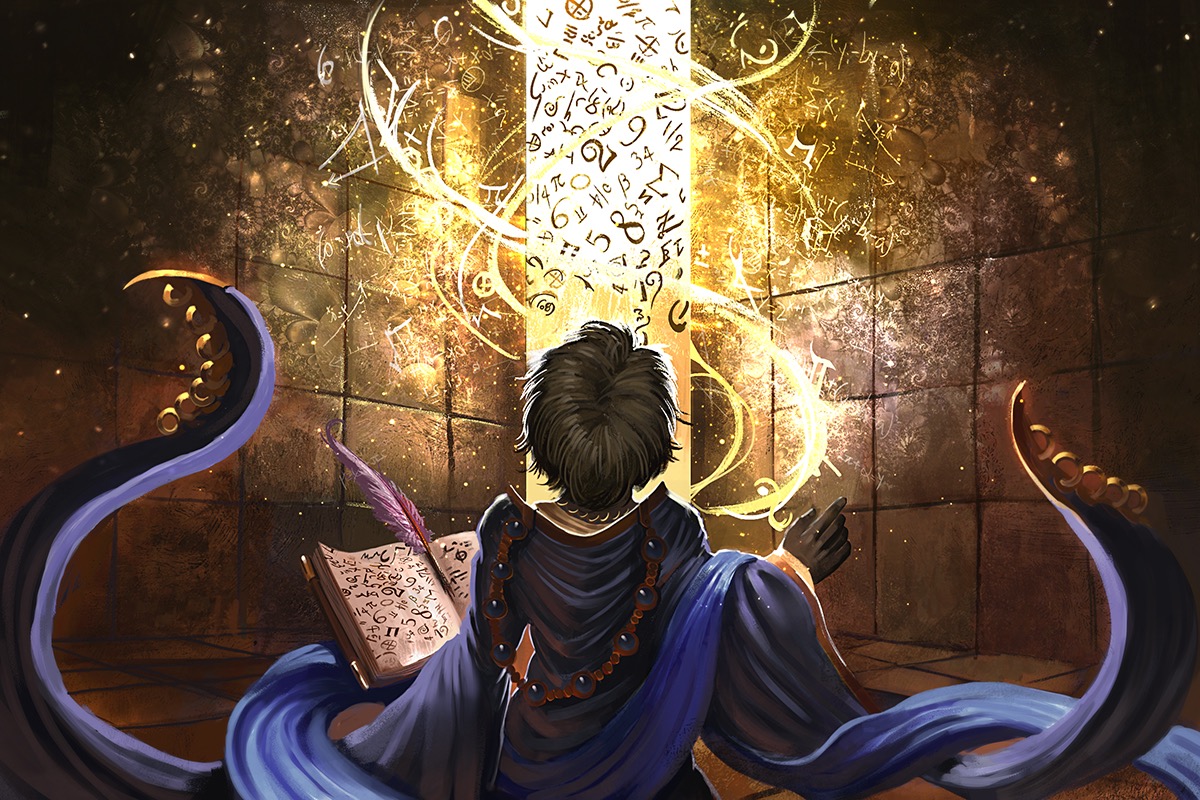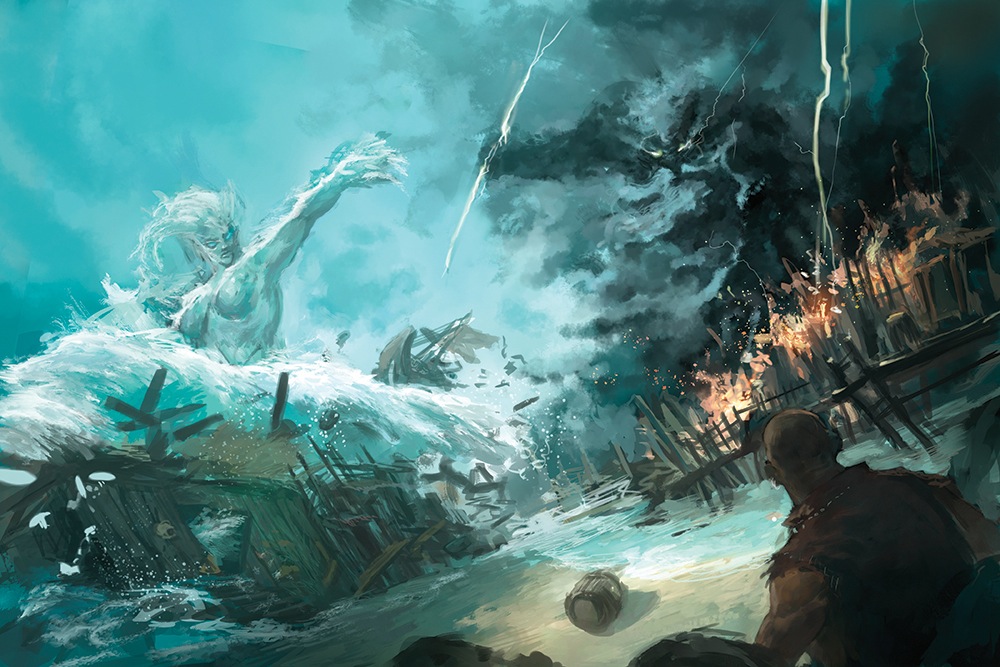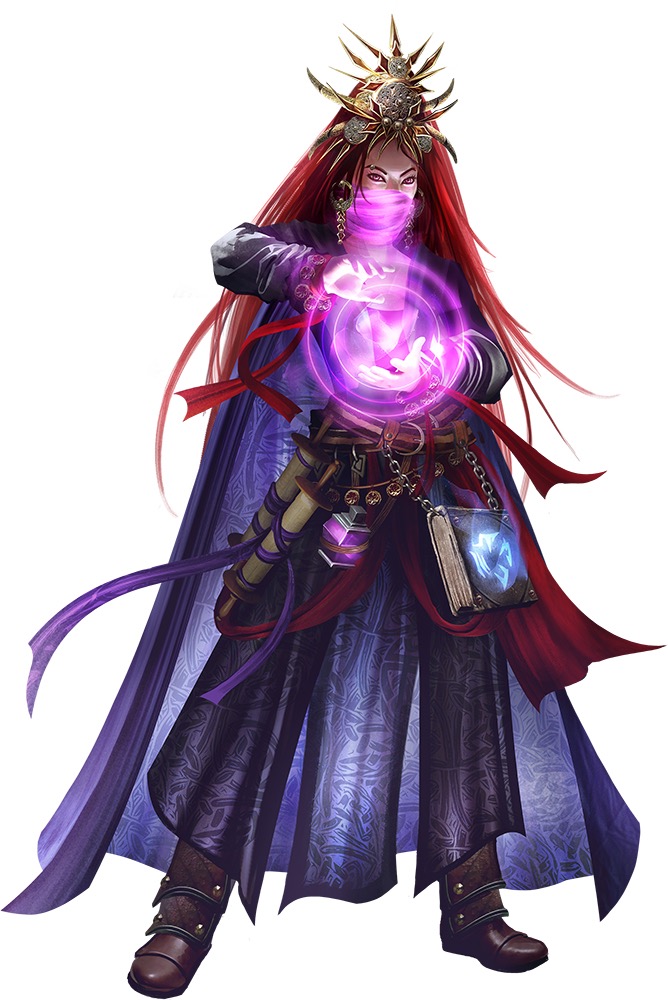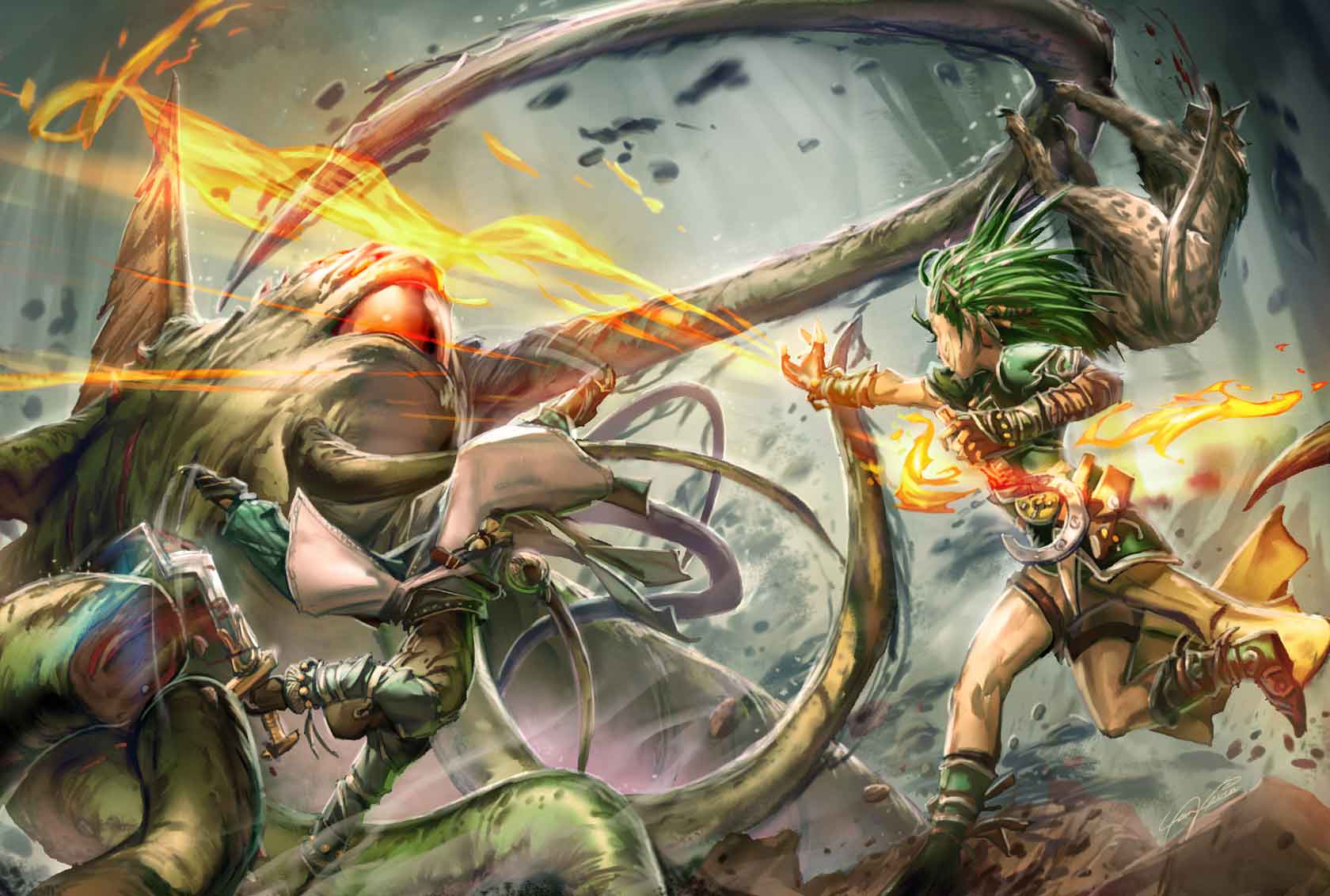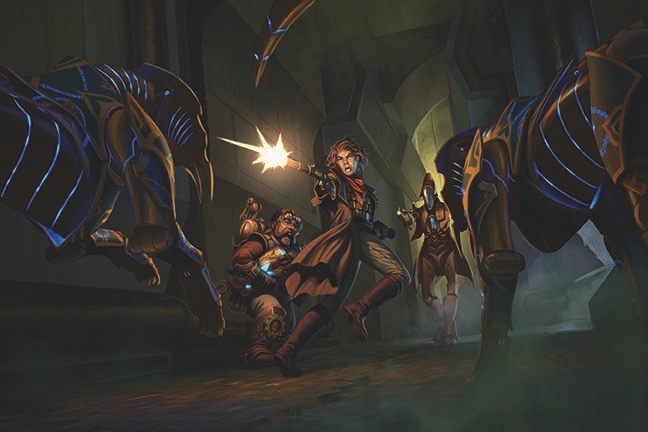Your character’s beginnings can be seen as a smaller part of their story. The smallest, even. After all, it’s the thing that happens before your first 20-sider even tumbles its way across the table. Many popular d20 games treat it as a small plot hook for flavor, but mostly as a means of giving a few extra skills here or there. And treating it as such is perfectly fine, of course. Some groups even flow better when character development is done entirely through organic growth during the sessions.
I offer an alternative proposition. And it isn’t just that you should sort it out with the group during session zero, though that’s a good place to start. I say that you can have a lot of fun if your backstory gets its own session.
Hello and welcome to Eldritch Excursion, the blog that built its backstory with a healthy combination of mechanics and flavor, but probably dropped the ball by not using this theme as its first entry. Then again, heretical degeneracy makes for a much more honest first impression. Today, we’ll be taking a look at exploring character backgrounds through a prelude session.
That Thing From the Other Guys
A prelude is a short, one-on-one session between the GM and a player that fits somewhere between session zero and session one. It covers a key moment in a PC’s backstory and flows naturally into the campaign. It’s a concept I first saw in White Wolf games from my earlier days of playing stuff like Vampire: The Masquerade and Changeling: The Lost. Those systems revolve around humans who were transformed into supernatural beings, and setting aside a little extra time to run a prelude for each character’s metamorphosis was expected of the system.
While it isn’t as core to the system, Pathfinder has its own springboard for preludes: Traits and Backgrounds for first and second edition, respectively. These are strongly tied to your character’s backstory, and in the case of published adventures, some are specifically written to tie a PC to the greater story line.
There are other benefits, of course. It gives the player a chance to try out their character in a mostly roleplay focused session. Try out a couple skill checks, field test that fun accent they’ve been working on, and even gain a little time to get in their own character’s head by running them through some kind of personal challenge. It’s also a solid place to introduce them to an NPC, giving them a social bond that can help immerse them in the world or to foreshadow a future plot moment. And of course, if you want to give the PC a little extra loot to help them at the early levels, this is a good time for them to earn it.
First Steps
So you’re interested in running preludes, but maybe you’re wondering how to write one. If you’re looking for a quick and dirty example of the structure and pacing, you could start with the Quests offered for Pathfinder Society organized play. A few of the oldies from first edition are free of charge and serve as decent examples.
However, you’ll have to adjust your expectations. For one, it’s made for a single player character, so challenges should be adjusted accordingly. Furthermore, as these have a greater emphasis on roleplay and plot hooks, you don’t have to worry about creating skill checks or combat scenarios that have a serious chance of failure. Or, if you do, make sure the consequences of failure aren’t that severe: skill checks don’t result in stopping progress, combatants don’t strike to kill. Preludes are meant to be completed.
Thankfully, writing a prelude is fairly simple. As a lot of the prelude will be based around roleplay and establishing characters, it can easily fit onto simple notes or even bullet points. As the prelude is based around a particular background, you can custom tailor the challenges to skills and abilities that you know they will have thanks to that background.
Outline of the Prelude of the Adventure
Let’s pretend there’s a hypothetical campaign where the first adventure involves combating a corrupt noble who’s got several institutions of a city in his pocket. Dealing with that noble is the first adventure’s main goal, and the rest of the adventure can come from learning about the greater evils that the noble serves. The hypothetical player takes a campaign background that has them falsely branded as a heretic.
Our story begins with the PC serving as an acolyte at the local church of Pharasma. While it’s a small and underfunded church, it is respected by the community. Its leader, Father Iblis, is stern and frugal. Among the acolytes, two show potential. One is Sevalno Bradaghast, a minor trade baron’s son who’s selfish disposition and loose tongue embarrassed his family one too many times. He was sent to the church to keep him away from the family business, but showed a strong interest in accumulating spiritual power. The other is the PC, who’s likely to have butt heads with Sevalno in the past. These details should be revealed to the player, but not Sevalno’s secret plot to have the PC excommunicated.
During the evening, the PC is tasked with guarding the mausoleum while Sevalno is tasked with sweeping the area as punishment for oversleeping and missing service. Sevalno approaches the PC and begins asking several questions. These can range from questions about where the PC grew up and what they think of their family to more pointed questions about a familiar or other noticeable class features. He might even ask unintentionally rude questions about an uncommon ancestry or heritage, if the PC has one. While these serve as a means for the player to explore their character, a DC 10 Perception check will allow the PC to notice that Sevalno is mostly doing it to avoid working.
After the PC has enough time to speak their peace, one of the graves begins to stir. Much to Sevalno’s horror, a buried corpse arises and attacks. This encounter takes place on the necropolis map (or an approximation thereof) and uses a weakened zombie, which is weaker thanks to the consecrated ground. Sevalno cowers behind the PC, advising them to run and get help. Whether the PC wins, retreats, or is knocked unconscious, Father Iblis arrives at the end of the encounter to heal the PC and deal with any remaining danger.
Iblis immediately demands to know what happened. Sevalno claims to have seen the PC intentionally trigger a magical rune that caused the undead to rise. He also claims to have seen the PC practice necromancy in their room at night, and that they used threats to keep him quiet about it. Sevalno also takes credit for fighting the zombie if he thinks he can get away with it.
In truth, the Bardaghast family called in a favor with the corrupt noble to smuggle a zombie onto the church grounds and plant a pouch full of onyx gems (a core component of creating undead) in the PC’s quarters during the chaos of the fight. While the PC can have a chance to defend themselves, the sentencing ultimately comes quick, with Father Iblis deeming the PC an enemy of the church and immediately demanding they leave. The Bardaghast family makes arrangements to ensure the news will spread to larger churches.
The next evening, the PC is confronted by a woman in robes and a mask. She refers to herself as the Arcane Avenger and claims that she knows that the PC is innocent, and might be able to help prove it. She also heard of the PC’s potential and asks them to help her investigate the corruption that ultimately led to their false accusation.
And there you have it. This one is a little more action oriented, but you’re free to write a prelude based anything from political intrigue to slapstick comedy. The only thing that matters is that it helps draw the player in. And hey, if you’ve already tried some kind of prelude for your game, sound off in the comments and tell me how it went!

